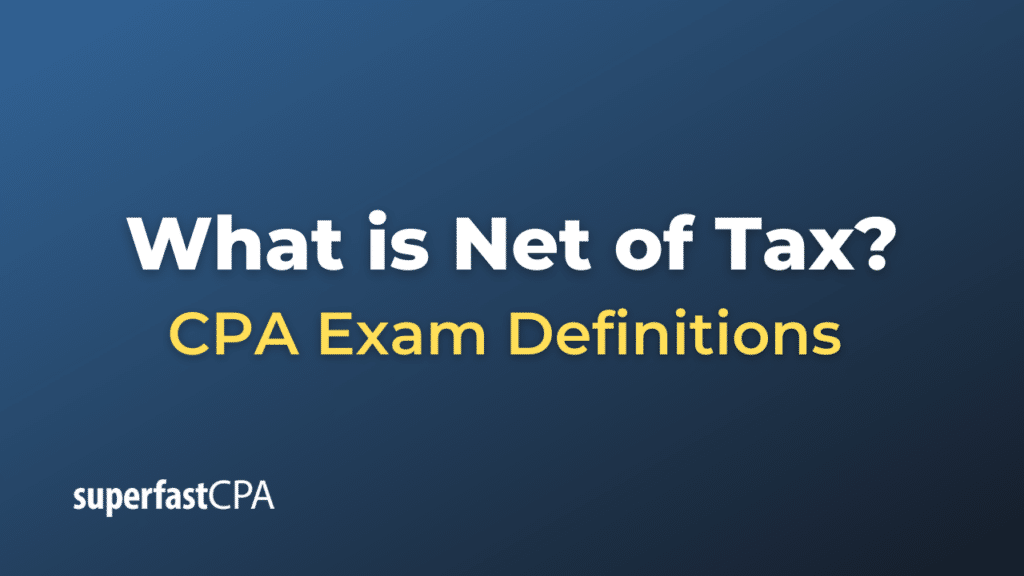Net of Tax
“Net of tax” refers to the amount that remains after taxes have been deducted. It can be applied to a variety of financial matters, including wages, profits, or investment gains. Essentially, the net of tax is what is left over after all applicable taxes have been subtracted.
In the case of wages, for example, the gross wage is what the employer initially offers to pay. However, after income tax, social security, and other deductions are subtracted, the amount the employee actually receives (the net wage) is less. This net wage is the amount “net of tax.”
In the case of a business, the net income or profit of a company “net of tax” means the profit after corporate taxes have been deducted. If a company reports that its profits are “$1 million net of tax,” this means the company has made $1 million after it has paid all of its taxes.
Similarly, in the context of investments, gains or returns “net of tax” mean the returns on the investment after taxes have been paid.
Example of Net of Tax
Let’s take an example of a business calculating its net income “net of tax.
Suppose a company named “TechNovel” has the following financial details for the year:
- Revenue: $500,000
- Operating Expenses (salaries, rent, utilities, etc.): $300,000
- Interest Expenses: $20,000
- Depreciation: $50,000
- Corporate tax rate: 25%
First, TechNovel would calculate its taxable income, which is revenue minus all allowable expenses:
Taxable Income = Revenue – Operating Expenses – Interest Expenses – Depreciation
Plugging in the given values:
Taxable Income = $500,000 – $300,000 – $20,000 – $50,000 = $130,000
Next, TechNovel would calculate its tax obligation:
Tax = Taxable Income * Tax Rate = $130,000 * 25% = $32,500
Finally, to get its net income “net of tax”, TechNovel subtracts its tax obligation from its taxable income:
Net Income (Net of Tax) = Taxable Income – Tax = $130,000 – $32,500 = $97,500
So, TechNovel’s net income “net of tax” is $97,500. This is the income that the company retains after all expenses, including taxes, have been paid.













